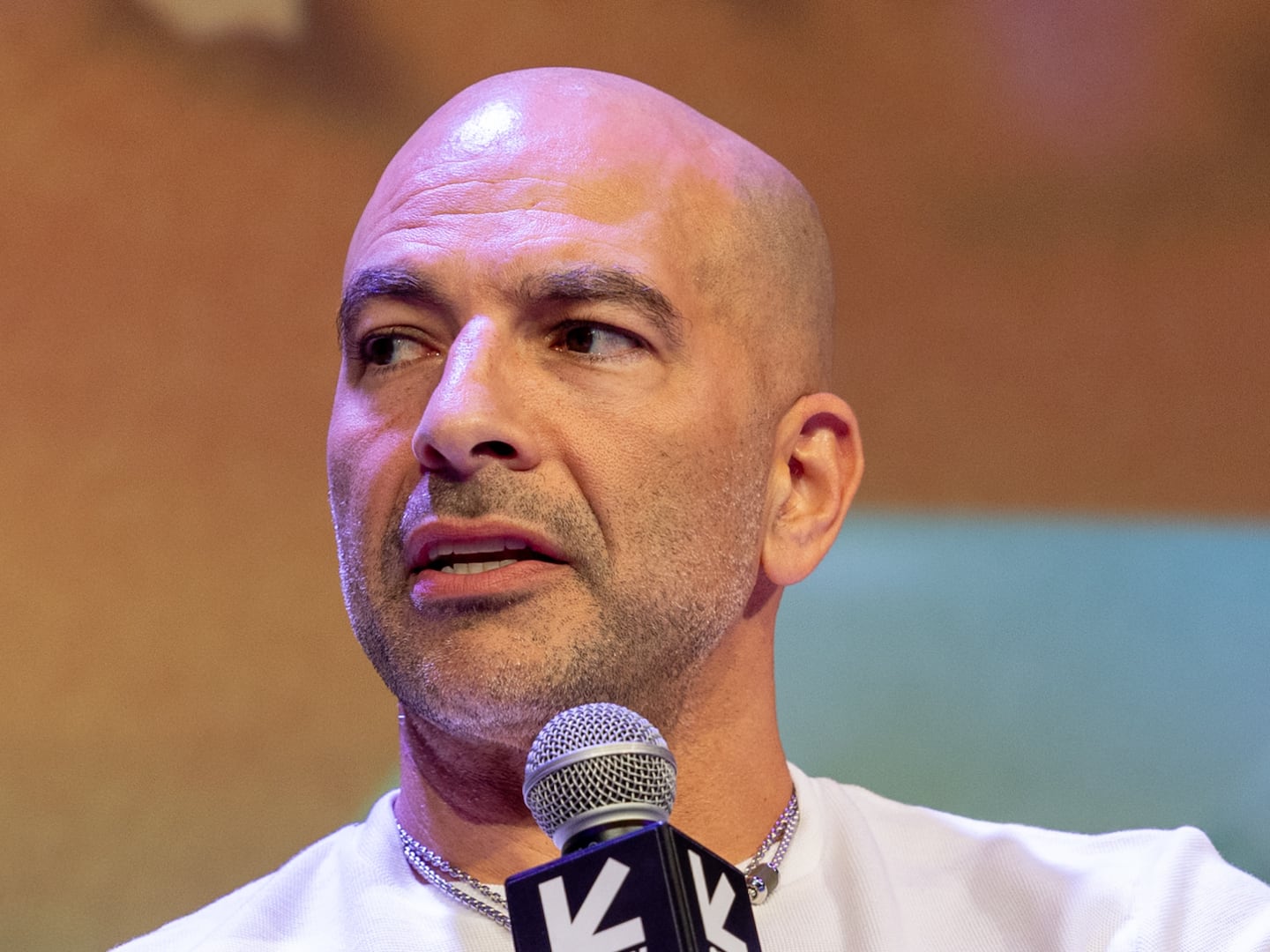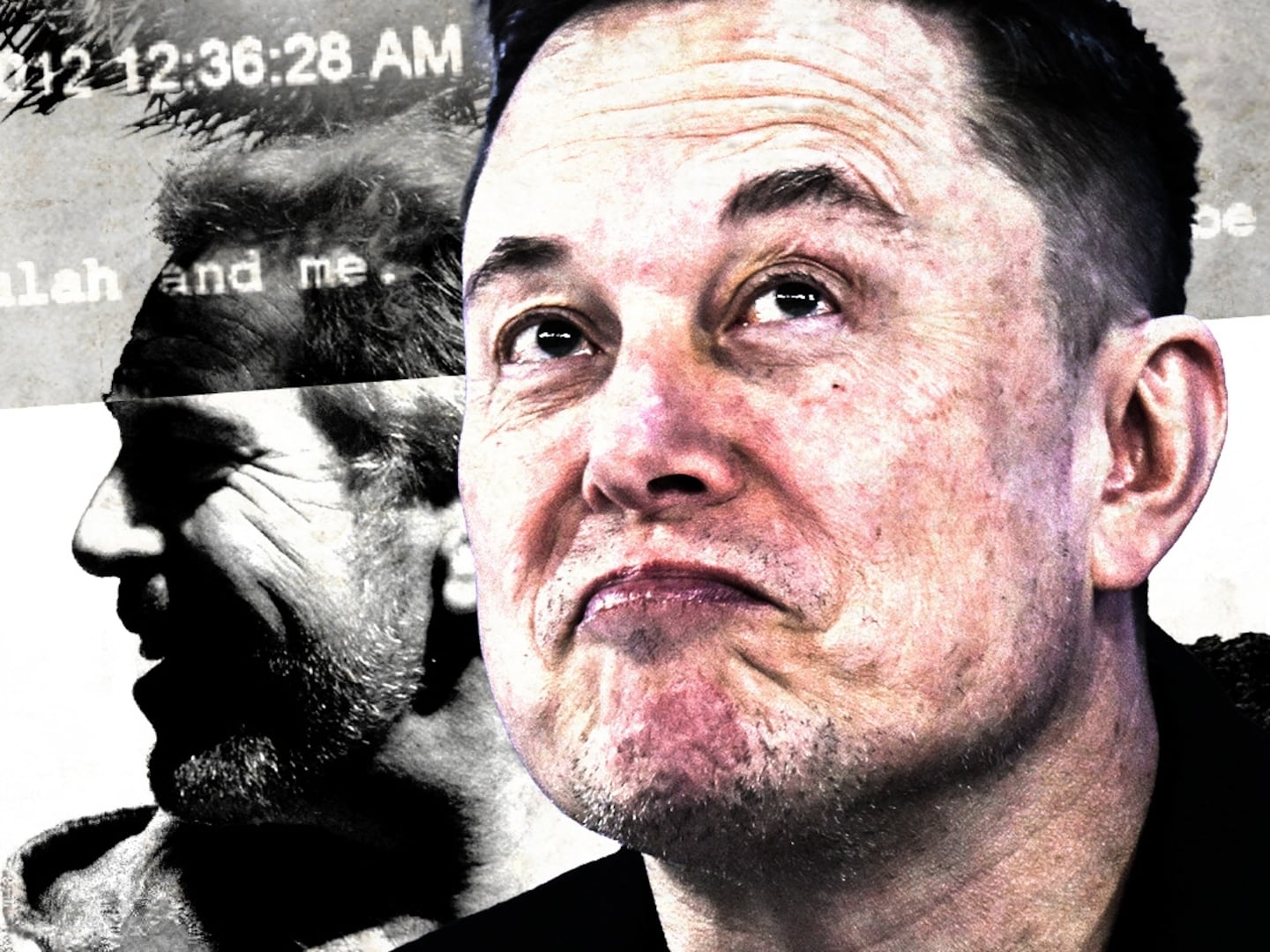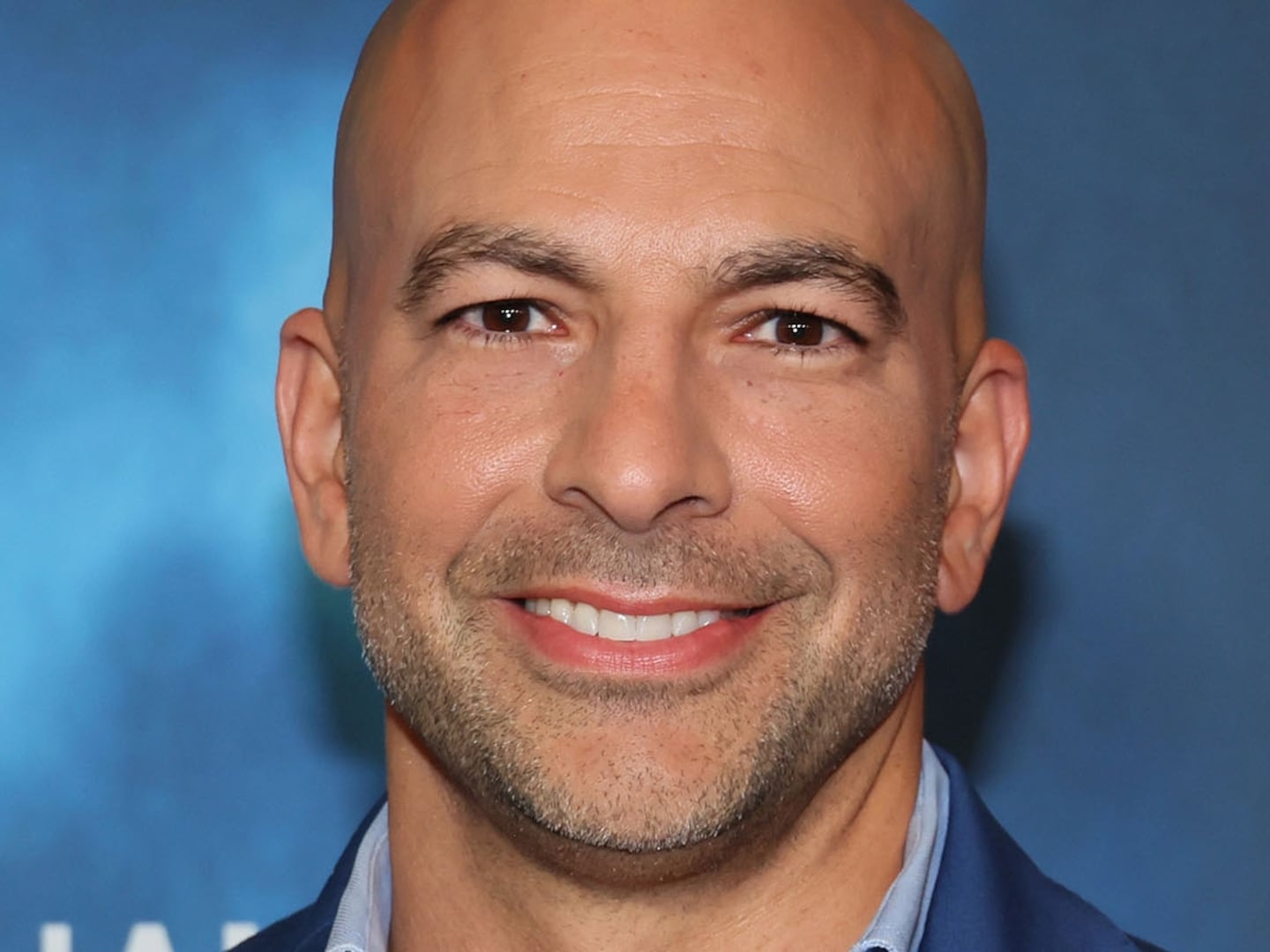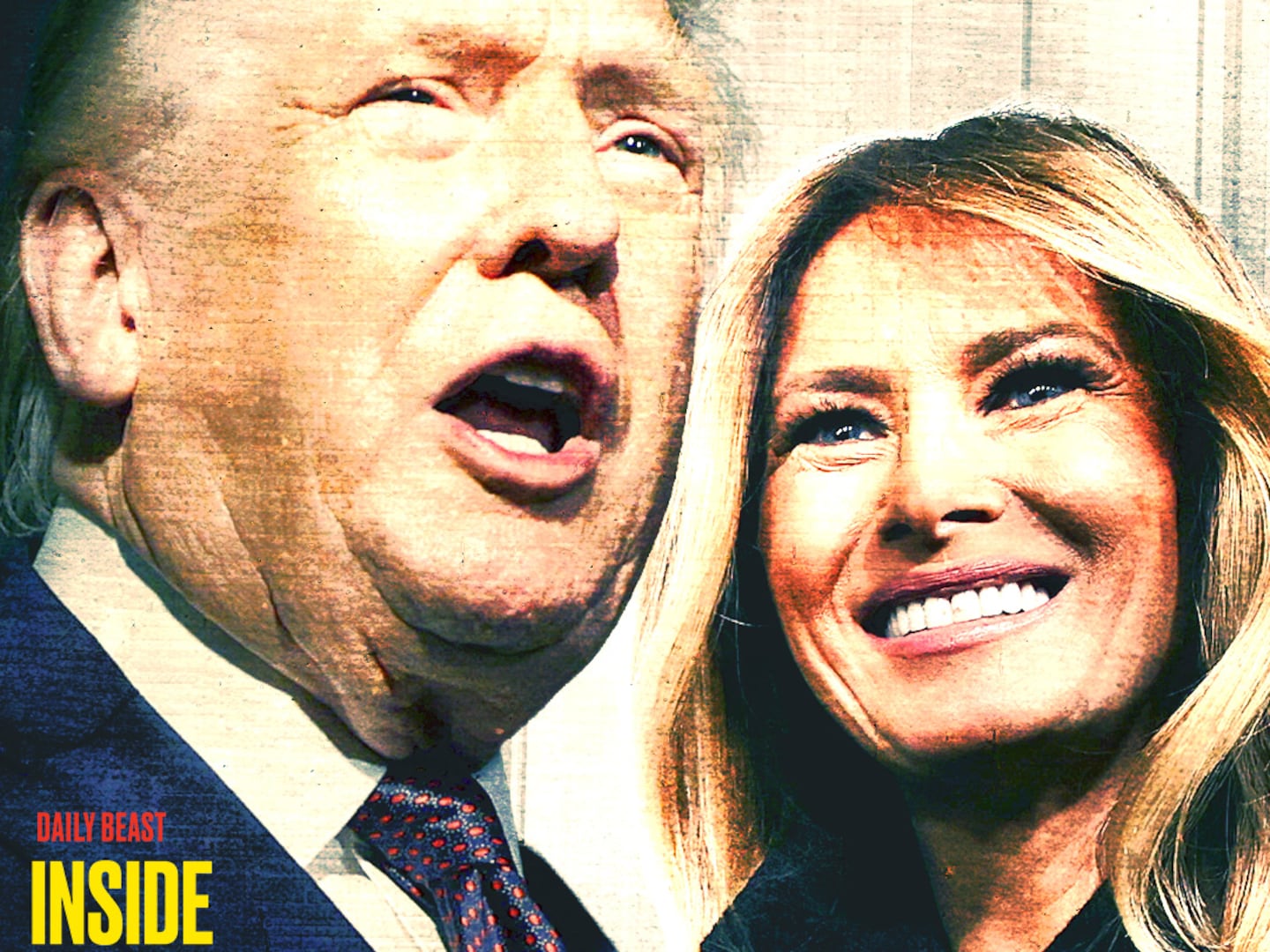“You’re on CNN. The show that leads into me is puppets making crank phone calls!”
In 2004, that’s how ex-Daily Show anchor Jon Stewart famously rebutted Crossfire host Tucker Carlson’s allegation that he had gone too soft on John Kerry. Seven years later, Stewart would tell Chris Wallace that he was “a comedian first” after the Fox News host accused him of making a “political comment” about Sarah Palin.
Of course, by the time Stewart left the Daily Show, it was clear that he wasn’t “just a comedian.”
As Pew Research Center data showed, 12 percent of Americans got their news, in part, from the Daily Show during Stewart’s tenure, which put the size of his audience “on par with that of USA Today and The Huffington Post.” And although most Americans told Pew that they primarily watched Stewart for entertainment purposes, at least 10 percent of Daily Show viewers said they turned to the show for the “latest headlines.”
Whether he liked it or not, Jon Stewart was something of a journalist—at least enough of one that he tied with Anderson Cooper, Tom Brokaw, and Dan Rather in a 2007 survey of most admired journalists.
“No, we’re a technology company. We’re not a media company.”
That’s how Facebook CEO Mark Zuckerberg responded to a question in late August about the role his company plays in the media. And much like Stewart’s repeated insistence that he was not a journalist, something about Zuckerberg’s refusal to characterize Facebook as a “media company” seems to have rung hollow.
Media outlets including Fortune, Business Insider, Recode, Mashable and the New York Times have all run articles and opinion pieces insisting that yes, Facebook is indeed a media company. And earlier this week, Gizmodo needled the social media giant with the clever headline: “Facebook—Definitely Not a Media Company—Will Broadcast the Presidential Debates.”
It has been less than a month since Zuckerberg said that Facebook wasn’t a media company and already, it’s about as hard to believe him as it was to buy into Stewart’s “just a comedian” defense over a decade ago.
Facebook itself may not be helping Zuckerberg’s case. In addition to broadcasting the presidential debates, the company will also be “providing data to the moderators in the weeks leading up to the debates on what people are searching and saying about the election, the candidates, and the issues,” the Commission on Presidential Debates announced last week. The social media company will also help “source questions” for the town-hall debate.
To be fair, it’s up to the moderators themselves which questions they ultimately ask Trump and Clinton—The Hill reported that Facebook’s role would be “advisory,” citing a Facebook spokesperson—but sourcing questions, supplying information, and serving as the “exclusive social media sponsor” for two of the debates is still a remarkably active role for a mere “technology company” to play in an election cycle.
In response to The Daily Beast’s question about whether or not Facebook still does not consider itself to be a media company given this level of involvement, a spokesperson referred to a comment made by Adam Mosseri, the company’s VP of Project Management for the News Feed, at a tech conference last week.
“We’re trying to figure out what people are interested in, we’re trying to figure out how to connect people with the sources of content that they find meaningful, we’re trying to figure out how to write stories based on how relevant they are to people,” Mosseri said. “These problems are primarily technical in nature, which is why we think of ourselves as a technology company.”
He continued: “That said, we know we play a meaningful role in media. A lot of people read their news on Facebook and read other types of media on Facebook and so it’s important to us that we are good partners with publishers in the media industry.”
At what point, though, does a meaningful role become so meaningful that you are part of an industry in which you participate? And how is connecting people with meaningful sources fundamentally different from what media companies try to do every day?
Mosseri is right about one thing: A lot of people do read their news on Facebook. A full two-thirds of Facebook users now get news on the social networking site, according to Pew data. That’s up from 47 percent three years ago. Given that nearly two-thirds of the adult U.S. population uses Facebook, well over 100 million Americans get their news, at least sometimes, through what was once a networking website for college students.
If Facebook were not such a massive source of news —or even if it deferred curation to community moderators like Reddit does—it might be easier to argue that it’s “just a tech company.” But when the very fate of digital publishing is wedded to the company’s mysterious algorithms, that case gets harder to make.
Indeed, Mosseri’s insistence that connecting people with sources is a “primarily technical problem” comes after weeks of controversy over Facebook’s Trending feature—months that have arguably proven that only an experienced team of humans with editorial experience can forge those connections.
In late August, Facebook fired the editorial staff on its Trending team, three months after former employees alleged in a May Gizmodo report that they “suppressed” conservative news outlets in the news-focused sidebar.
In some cases, this may have been a matter of ensuring reliable sourcing: Breitbart, for example, has published some truly questionable content and therefore, it might make sense to subject its stories to more scrutiny before placing them in front of millions of eyes. And after an internal review, Facebook claimed it found no evidence of political bias on the team.
But that didn’t stop the company from sending the editorial staff packing, making the Trending feature even “more automated” and “no longer requir[ing] people to write descriptions for trending topics,” as Facebook announced at the time of the mass firing.
Quartz has since reported that the Trending team is now “staffed entirely by “engineers, who will work to check that topics and articles surfaced by the [Trending] algorithms are newsworthy.”
If that’s the case, then those engineers have been routinely fouling up—in the leadup to a presidential election awash in conspiracy theories, no less.
Almost as soon as the staffing change was made, a fake story claiming that Fox News anchor Megyn Kelly was “a closet liberal” began trending, albeit a few slots under the now-infamous McChicken story.
Facebook vice president of global operations Justin Osofsky issued a statement saying, “This was a mistake for which we apologize, and it has been corrected.”
He went on to explain that the fake Megyn Kelly story first surfaced because of the number of posts about it and then “the Trending review team accepted it thinking it was a real-world topic” He also promised “to make our detection of hoax and satirical stories quicker and more accurate.”
But whatever tweaks were made still allowed a bogus poll about Hillary Clinton’s health and a 9/11 conspiracy theory to climb the Trending sidebar on the same day, as The Daily Beast’s Ben Collins reported.
In a statement, a Facebook spokesperson told The Daily Beast that it’s still working out the kinks in the new, more-automated Trending feature.
“Our goal is to make Trending as useful as possible to the people who use Facebook every day,” a spokesperson said in a statement. “We are listening to feedback and applying what we learn to improving the product. We’re particularly focused on the speed and accuracy with which we detect hoax and satirical stories. We are in the process of testing how best to do this and will keep iterating to make it better.”
Along with several other companies including Twitter, Facebook also recently joined the First Draft Coalition to help stop the spread of fake news and hoax stories.
But even if changes are coming down the pike, 2016 has been a hell of a time for Facebook to have an existential crisis about whether or not it’s a media company.
Conspiracy theories and misinformation have often dominated whole news cycles, whether it was Donald Trump’s suggestion that Ted Cruz’s dad helped kill JFK or his claim that Barack Obama founded ISIS. Many Americans are inclined to believe in conspiracy theories, too, so seeing them appear in a space that was once curated by an actual editorial staff can only lead to confusion in a moment that requires clarity.
In other words, now more than ever might be a good time for a company that relay news to over 100 million Americans to not rely on a team of engineers. Even comedians who profess that they definitely aren’t “journalists” like Jon Stewart and John Oliver have researchers who help them prepare their stories.
But for Zuckerberg to change course now would be a tacit admission that the critics have been right all along: Whether he likes it or not, Facebook is probably the most powerful media company on earth.






